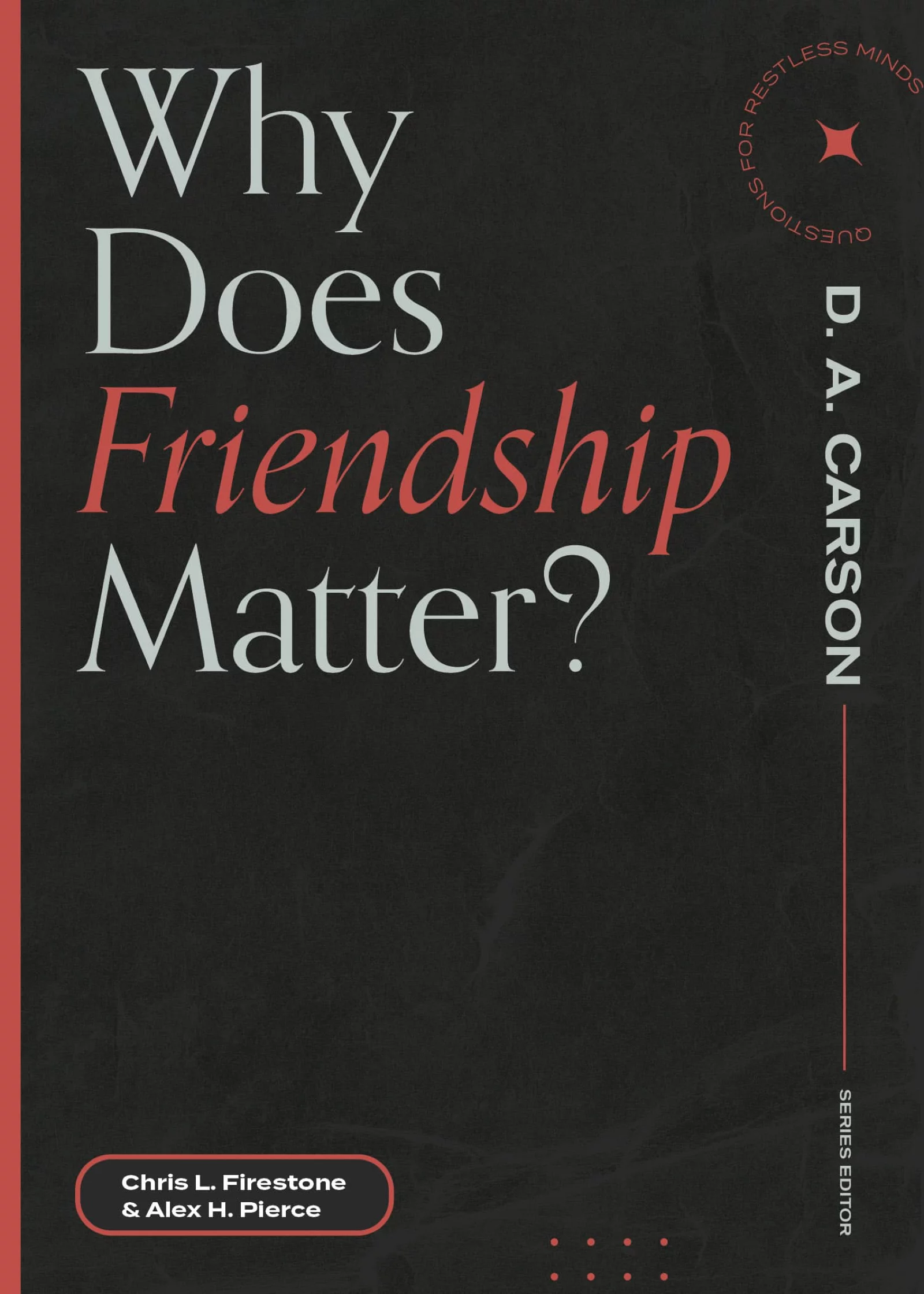

Why Does Friendship Matter?:(Questions for Restless Minds)
Chris Firestone,
Alexander H. Pierce
Lexham Press
How you can make the best of your friendships.
In a world where making friends—and unfriending—can be done with a click, is friendship the most disposable relationship? Or is it an underappreciated treasure? How should you think about your friends?
In Why Does Friendship Matter?, Chris L. Firestone and Alex H. Pierce consider the profits and perils of friendship. Everyone needs friends. Friends help us navigate and enjoy life: “The sweetness of a friend comes from his earnest counsel” (Prov 27:9). Firestone and Pierce define friendship, draw from perspectives of the past, and consider different types of friendship, its limits, and possible red flags. Learn what makes for a good friend and how you can be one.

